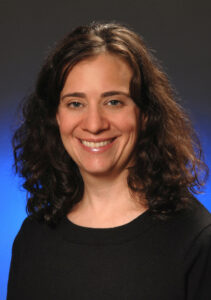February is Jewish Disability Awareness, Acceptance and Inclusion Month, or JDAIM. Established by the Jewish Special Education International Consortium in 2009, the month is dedicated to raising awareness of Jewish community members with disabilities and Jewish organizations focused on servicing them.

But regardless of the month, Jewish Community Services aids Jewish community members with disabilities all year round. JCS even help them find jobs with their Employment Support Services program, or ESS. ESS participants receive training in everything from marketable life skills to interviewing and resume-writing in order to assist them in finding ways to support themselves in their community.
JCS’s founding organization, Jewish Vocational Services, first started providing career assistance for individuals with disabilities in the late 1970s. ESS started out as a smaller part of a larger career center. Jewish Vocational Services merged with three other organizations to form JCS in 2008, but as ESS received state funding from Maryland’s Developmental Disabilities Administration and Behavioral Health Administration, it was able to branch out and become its own service.
Job-seeking individuals with disabilities enter ESS as clients and receive education in job readiness skills. The program services over 100 individuals a year, ranging from teenagers looking for a part-time job after school to people in their 70s and 80s.
“We help them evaluate their skills and abilities so as to determine what they would be good at doing and what they would like to do,” explained Jamie Leboe, associate senior manager of Employment Support Services. “We help them create resumes, and we network within the community to help our clients find positions. Once they do find positions, we provide ongoing support.”
Previous ESS clients have secured positions at car dealerships, in grocery stores, at preschools and bakeries. ESS typically focuses on community-based positions, paying at least minimum wage, that any person in the general public would be able to apply for. This ensures clients with disabilities are able to work on equal footing with their coworkers.
JCS has several partnerships with local employers, formed by its employment specialists and companies that have worked with JCS in the past. These partnerships form the foundation of a career database that helps match ESS clients with positions that suit their interests and skill levels.
Typically, ESS employment specialists take a “skills-first” approach to helping their clients get jobs — they do not lead with the fact that their client has a disability, but with what they can bring to the table as an employee. While their disability may come up in the discussion eventually, it is important to ESS that they present their clients as well-rounded, accomplished people and do not reduce them to their disability or health.
“We hope that all employers are going to be inclusive, but we want to lead the conversation with what [clients] can do,” Leboe said.
Leboe relayed the story of one ESS client, who secured a job doing janitorial work after graduating high school but wanted to do something else with his career. He filled out a job assessment, which showed that he would be suited to a hands-on job working with tools. ESS set him up with a training course in auto mechanics, and he secured a job at Jiffy Lube shortly before the COVID-19 pandemic started.
“He achieved nearly every goal he had set for himself when we started working with him,” Leboe said. “He wanted to learn to drive; he learned to drive. He got a job that was close to him, and he’s been successful. Now, he’s working to save up enough money to get an apartment with his girlfriend, who also has a diagnosed disability.”
This is just one of many success stories that has come from the ESS program. Due to its nature as part of a Jewish community organization, the program also accounts for cultural considerations like keeping kosher in a food service environment.
“There are individuals who are involved in [JCS’s] other services for people with disabilities, and there are pre-employment activities we offer that can help lead them into Employment Support Services,” said Jacki Ashkin, JCS’s director of community connections. “There are activities that can help them gain social skills, daily living skills … just real, functional skills that help them become employable.”







